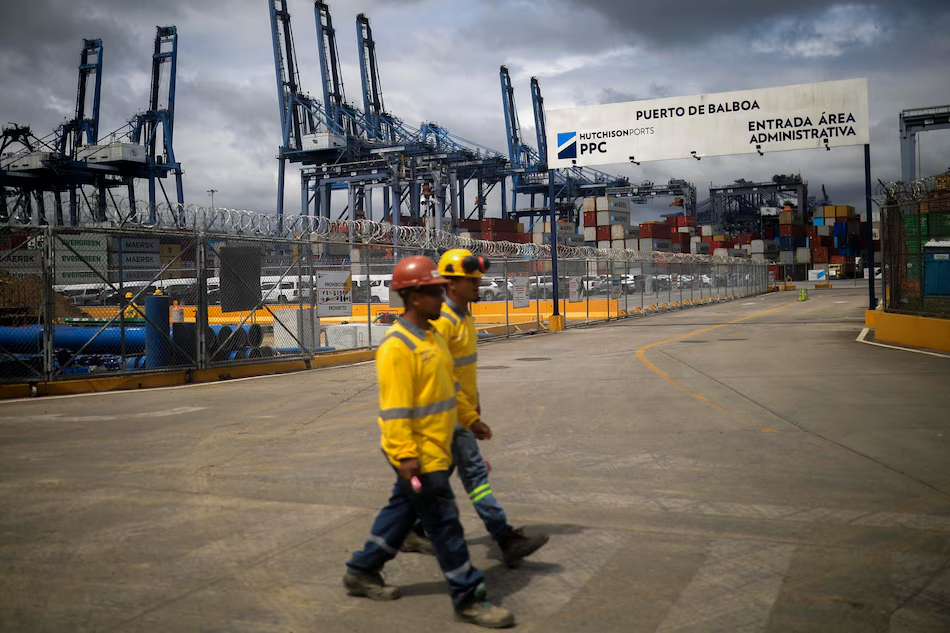WORLD VIEW: Time for US to leave the Gulf?

By Jonathan Power
REPORTING on President Donald Trump’s new energy policy which plans for a big increase in domestically produced oil and gas, the Financial Times reported yesterday: “Exports of gas have begun, with the first shipments of Liquefied Natural Gas leaving the Sabine Pass facility on the border between Texas and Louisiana a year ago. Since then trade has grown and the US now supplies a dozen different gas markets around the world”.
The US is all set to speed this up.
Trump is stepping on the accelerator of what had begun a year ago, and not just with gas but with oil too. He is driving not only to raise gas and oil exports but to achieve US energy self-sufficiency. Increased shale and coal production, support of the huge Keystone XL pipeline from Canada and the removal of restrictions on venting gas production from developments on federal land, are all part of his mix.
There are two lessons from this. Oil prices are unlikely to return to their extraordinary high levels of a couple of years ago and it raises the important question, why is the US spending 75 billion US dollars a year on its military presence in the Gulf?
There would be some risks in a strategy of reducing the US’s military presence in the Middle East but they are hypothetical risks, as Professors Charles Glaser and Rosemary Kelanic point out in the current issue of Foreign Affairs.
Since oil is fungible Middle East suppliers could possibly disturb the world price with irresponsible behavior, meant to rock the boat- which even the US would have to work hard to protect itself from.
But this depends on some unlikely scenarios. The first is that a Gulf country could conquer some of its oil and gas producing neighbors.
In reality there is no such regional hegemon on the horizon. Iraq is down and out. Iran is fixated on internal threats. Saudi Arabia is not interested in territorial conquest.
The choke point
A second hypothesis is that Iran might disrupt the flow of oil through the so–called “choke-point” of the 21 mile-wide Straits of Homuz that gives access to the Gulf.
Iran certainly does not have the capability to close the strait completely. Even more important is that if it tried to Iran would shoot itself in the foot, making it difficult for it to supply world markets at the level it wants.
Thirdly, there is no evidence that, after coming through the drama of its deal making with Europe, the US and Russia over its nuclear program, that it wants to get into another confrontation.
It wants to get on with its own development. It wants more sanctions lifted, which means making that unambiguously clear.
The fourth hypothesis is that one of the main producers might suffer massive internal instability that interfered with its oil production.
Saudi Arabia is the nightmare scenario. Saudi Arabia has its problems and its rulers need to get on with some badly needed changes, not least with the role of women, the observance of human rights and democratic practice in the political arena, but hardly anyone foresees an upset of such proportions that its oil and gas production is seriously affected.
The situation in Iraq is improving. Iran is not ripe for revolution. Neither are the Gulf’s smaller states.
Even in the highly unlikely event of one of these hypotheses proving correct the US has its massive Strategic Petroleum Reserve to fall back on, storing around 700 million barrels which is part of the 4 billion barrel reserves held by members of the International Energy Agency.
China also is developing its reserves. This would give the Western countries 8 months of oil.
8 month window
Even if there was not one Nato soldier posted to a Gulf state it wouldn’t take 8 months for forces to be brought in from home or other parts of the globe where they are deployed.
The US has other ways to protect the Gulf. Besides increasing the size of its Reserve it can actively encourage other countries to do likewise.
It can work to decrease its own energy demand from cars, trucks and planes. Trump could pick up where Barack Obama left off in pushing for more fuel efficiency and expanding wind, solar and tidal sources of power and speeding the spread of electric cars.
He could even increase taxes on vehicles- which of course he is unlikely to do, except that if an emergency starts to loom even he might decide to do that.
The US and its Nato allies need to longer commit so many military resources to the Gulf.
Not only is the expenditure not needed it would help pull the rug from under the Islamists who shout and scream about Western imperialism, and fight.





